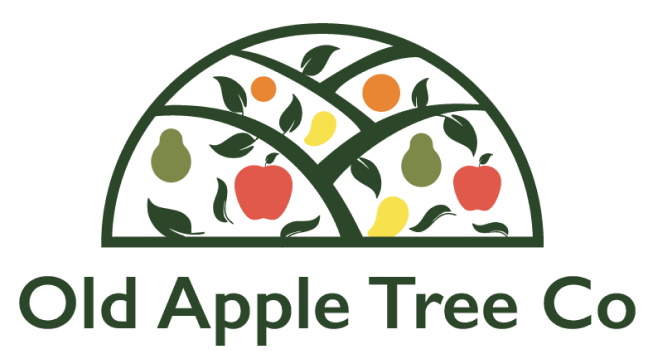In the alluring world of fruits, apples have held a special place for centuries. However, hidden beneath their shiny exterior lies a disturbing truth – the widespread use of harmful chemicals in conventional apple farming. In this eye-opening blog, we unveil the unsettling reality of the “Dirty Dozen” and the dangerous chemicals lurking on the skins of these seemingly innocent fruits. Brace yourself for a journey through the dark side of apple cultivation, and discover why making the switch to organic apples is crucial for your health and the planet.
The Dirty Dozen: Exposing the Chemical Menace: Environmental Working Group’s “Dirty Dozen” list reveals a shocking revelation: apples top the chart as the fruit with the highest pesticide residue. But what does this mean for you and your loved ones? Let’s delve into the extensive list of chemicals used in conventional apple farming and their purpose:
- Chlorpyrifos: An organophosphate insecticide known to cause nervous system damage. Shockingly, it is found in the majority of conventionally grown apples, leaving a residue that accumulates in your body over time.
- Diphenylamine: A controversial chemical used post-harvest to prevent skin browning. Banned in Europe due to health concerns, its lingering presence raises questions about long-term effects.
- Captan: A fungicide applied during apple growth, it leaves traces on the fruit, which can lead to skin irritation and gastrointestinal stress.
- Thiabendazole: Another post-harvest fungicide with potential toxic effects on human cells and organs.
- Carbaryl: A widely used insecticide known to be harmful to both humans and wildlife.
- Imazalil: Used to prevent mold growth on apples, it’s a known carcinogen that may linger in your body.
- Phosmet: An insecticide that may affect the nervous system and potentially disrupt hormone function.
Fact : As many pests infest apple orchards, a total of 40 or more synthetic chemical pesticides are sprayed every 10 days over the entire growing season.
Apart from the ones mentioned above the list goes on, some of the others are :
Pesticides:
- Malathion – Insecticide, effective against a wide range of insects.
- Imidacloprid – Insecticide, commonly used against sucking insects.
- Methomyl – Insecticide, used to control caterpillars, beetles, and flies.
- Acephate – Insecticide, effective against a variety of pests.
- Dimethoate – Insecticide and acaricide, used to control mites and insects.
Insecticides:
- Neonicotinoids (e.g., Clothianidin, Thiamethoxam, Imidacloprid) – Broad-spectrum insecticides, used to control pests by affecting their nervous systems.
- Organophosphates (e.g., Malathion, Chlorpyrifos, Diazinon) – Effective insecticides that disrupt the nervous system of pests.
- Pyrethroids (e.g., Lambda-cyhalothrin, Cypermethrin) – Synthetic insecticides that target insects’ nerve cells.
Fungicides:
- Thiophanate-methyl – Systemic fungicide, used to protect apples from various fungal diseases.
- Myclobutanil – Systemic fungicide, effective against powdery mildew and other fungal diseases.
- Fenhexamid – Protectant fungicide, used to control apple scab and other fungal diseases.
- Propiconazole – Systemic fungicide, used to manage apple diseases like apple scab and powdery mildew.
Growth Regulators:
- Gibberellic Acid – Plant growth regulator, used to increase fruit size and thinning.
- Naphthaleneacetic Acid (NAA) – Plant growth regulator, promotes fruit thinning and elongation.
- Ethephon – Plant growth regulator, used to enhance fruit ripening and color development.
- Prohexadione-calcium – Plant growth regulator, used to control vegetative growth and enhance fruit quality.
- Paclobutrazol – Plant growth regulator, used to manage tree size and improve fruit quality.
Chemicals for Texture Modification:
- 1-Methylcyclopropene (1-MCP) – Ethylene action inhibitor, used to delay ripening and extend shelf life of apples.
We recommend you do not consume any produce from the dirty dozen unless you can procure an organic variant
Choose Organic for a Healthier Tomorrow: The harmful effects of pesticide-laden apples cannot be ignored. Studies show that pesticides not only stay on the fruit but also penetrate its skin, leaving residues that accumulate in our bodies over time. By choosing organic apples, you can break free from this chemical cycle and embrace a healthier alternative.
Organic apples are grown without the use of harmful pesticides, offering you a safe and nutritious option. These apples are not only free from harmful chemicals but also packed with essential nutrients that contribute to your overall well-being.
Empowering a Sustainable Future: Every time you opt for organic apples, you play a pivotal role in supporting sustainable agriculture. Organic farming practices not only protect your health but also nurture the soil and ecosystem, ensuring a bountiful harvest for generations to come.
Conclusion: The apple industry’s chemical-laden reality is a cause for concern. By understanding the extensive list of chemicals used in conventional apple farming and their potential harm, we empower ourselves to make informed choices. Choose organic apples to protect your health, the environment, and the livelihoods of organic farmers who embrace nature-friendly practices.
Together, let’s cultivate change and take a bite into a healthier, chemical-free future. Make the switch to organic apples, and savor the taste of nature’s goodness while protecting yourself and our precious planet. Remember, the choice is yours, and every apple you pick can make a significant impact on your health and the world around you.

